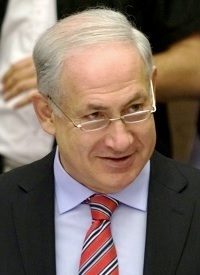
Reuters news reported on May 7 that Israel does not plan to review its nuclear policies, despite efforts by the United States and other world powers at the current UN conference of Parties to the Nuclear Non-Proliferation Treaty (NPT) to promote a Middle East free of nuclear arms.
A senior Israeli official told Reuters concerning the latest proposal being aired at the UN conference: "There is nothing new here, and no reason for a change of direction on our part.”
Israel is one of a handful of nations (the others being India, Pakistan, and North Korea) that are not NPT signatories. These non-member nations all have nuclear arsenals or weapons programs. For unknown strategic or diplomatic reasons, Israel has not officially acknowledged its nuclear arsenal.
The Reuters report noted that Egypt has circulated a proposal to the NPT’s 189 signatories calling for a conference by next year on eliminating nuclear weapons from the Middle East.
The report cited statements from Western diplomats that the United States and Russia, with the support of Britain, France, and China, have been negotiating with Egypt to develop a compromise proposal acceptable to all nations in the Middle East, which presumably includes Israel.
Two days earlier, on May 5, the five permanent members of the UN Security Council — the United States, Russia, Britain, France, and China — had voiced support for making the Middle East a nuclear-weapons-free zone, which would force Israel to scrap any nuclear weapons it has. "We are committed to a full implementation of the 1995 NPT resolution on the Middle East and we support all ongoing efforts to this end," read the statement.
U.S. Undersecretary of State Ellen Tauscher told an audience of delegates and reporters on May 5 that it was hard to imagine negotiating "any kind of free zone in the absence of a comprehensive peace plan that is running on a parallel track."
Egyptian Foreign Minister Ahmed Abul Gheit was quoted by AFP on May 6 as saying that his government was in talks with the five members of the UN Security Council with veto power concerning proposals for a nuclear-free Middle East. "We have to have a conference, an international conference, whereby the nuclear powers, as well as the regional countries, would meet and discuss how to establish a zone free of nuclear weapons," Abul Gheit told reporters during a visit to Cyprus.
AFP noted that the non-aligned states (of which Egypt is considered to be a leading voice) “also want Israel, which is believed to have some 200 nuclear warheads, officially to declare its arsenal and then join the nuclear Non-Proliferation Treaty (NPT) in order to disarm.”
ShalomLife, a Toronto-based Jewish newspaper, noted in a May 5 report that Israel is currently engaged in talks with the United States about what types of measures might potentially be put into place to stop the spread of nuclear arms, citing a Western government statement to the Israeli newspaper, Haaretz.
Some Western observers see the “big five” proposal for a nuclear-free Middle East as a concession to Arab nations, especially Egypt, in order to secure their support for sanctions against Iran, which is a party to the NPT. Since it is widely assumed that Israel has a stockpile of nuclear weapons, Arab nations view allowing this exemption for Israel — while holding Iran accountable for enriching uranium to a level that might allow for the eventual development of such weapons — to be a double standard.
However, Israel Michaeli of the Israel Atomic Energy Commission said in an interview with Israel’s Army Radio on May 3, the first day of the NPT conference at the UN: "We don’t really like this matter, but is there anything to fear, really? I don’t think so. Our complaint is that people make this comparison between Iran and Israel, when there is absolutely nothing to connect the two.”
"Israel did not join the [NPT] pact, did not undertake its obligations. To a degree it paid a price for this, but it has certainly never cheated or defrauded anyone."
This controversy does make the Israeli decision not to sign the NPT seem smarter than ever. The pretext used by those advancing the U.S.-led efforts to impose a new round of UN sanctions on Iran is that the Islamic nation is in violation of its NPT “obligations.”
But Israeli Michaeli has pointed out the obvious: "Israel did not join the pact, did not undertake its obligations.”
If Michaeli’s statement is indicative of standard Israeli thinking, perhaps it would be best for the United States to recruit most of its Secretaries of State from Israel, instead of from the internationalist think tank, the Council on Foreign Relations [CFR], whose members seem to have an instinctive aversion to U.S. sovereignty, and an addiction to signing treaties that place U.S. foreign policy under UN control.
For articles exposing the dangers of placing U.S. nuclear weapons under UN control, please read:
The UN Nuclear Disarmament Conference
Nuclear Security Summit Continues Strengthening of UN
Obama and Medvedev Sign Arms Treaty
United States, Russia Reach Nuclear Arms Deal
Photo of Israeli Prime Minister Benjamin Netanyahu: AP Images



